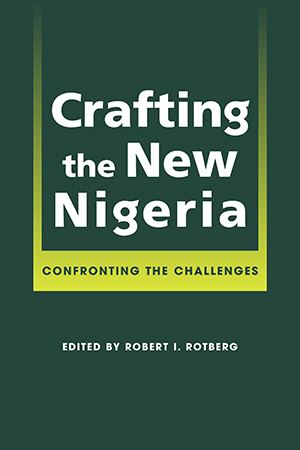Robert I. Rotberg, editor
Is Nigeria, with its vast wealth in both human and natural resources, on the path to realizing its enormous potential? Or is it in danger of becoming a failed state? Crafting the New Nigeria considers the challenges that the country's leadership now faces, offering rich—and sobering—analyses of Nigeria's current political and economic systems.
Robert I. Rotberg is president of the World Peace Foundation and director of Harvard University's Program on Intrastate Conflict, Belfer Center for Science and International Affairs, Kennedy School of Government. Previously, he was professor of political science and history at MIT and also served as academic vice president of Tufts University and president of Lafayette College. His recent publications include When States Fail: Causes and Consequences and Ending Autocracy, Enabling Democracy: The Tribulations of Southern Africa.
"Indispensable for anyone interested in understanding Nigerian politics; indeed, it should be required reading not only for political scientists specializing in Nigeria, but also for diplomats, NGO workers, expatriate businessmen, and others who need to understand the political economy of Nigeria today."—John Edward Phillips, African Studies Review
"Provides a rich, timely, and indispensable understanding of the political and economic systems in Nigeria today."—Princeton N. Lyman, Council on Foreign Relations








